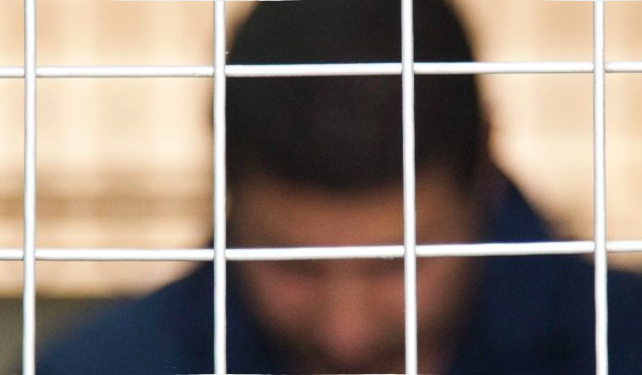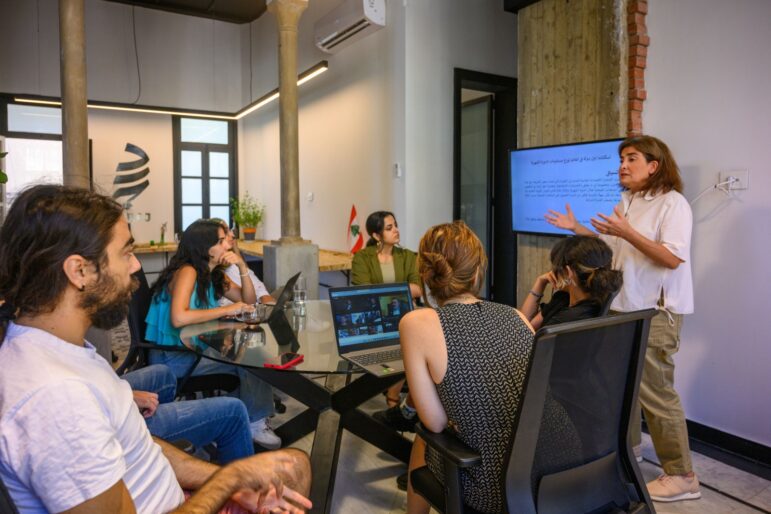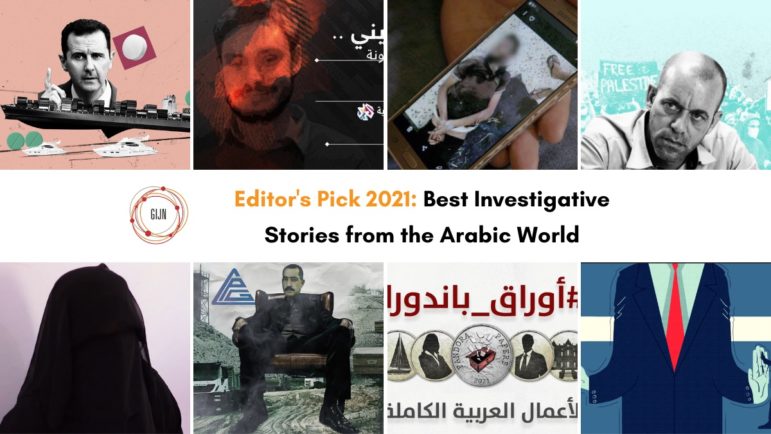

Editor’s Pick: Top Investigative Journalism in Arabic 2017
It’s no secret that the Arab world is one of the world’s most dangerous places to be a journalist. But that’s what makes this list of top investigative stories so impressive.
A quick scan of the map from Freedom House’s latest Freedom in the World report sums up the dire situation: most countries in the Middle East and North Africa are colored a depressing purple, for “not free,” with a rogue’s gallery of bad actors against the free press. According to Reporters without Borders, Syria is the single deadliest country on the planet for journalists, while Egypt and Bahrain are where journalists are most likely to be imprisoned. Brutal cops, corrupt judges, thin-skinned autocrats, violent extremists, weak-kneed bosses and lousy work conditions — the region seems like hell for a journalist.
Despite all these limitations, seven years after the faded promise of the Arab Spring, journalists in the region are accomplishing something extraordinary: They are continuing to produce hard-hitting investigative stories, whether it is reports of police involvement in sniping of demonstrators in Tunisia or tracing the smuggling of sophisticated weapons to ISIS on Egypt’s Sinai Peninsula.
GIJN’s Arabic editor, Majdoleen Hassan, pulled together these top choices from investigations done in the region during 2017. Many of these were supported by GIJN-member Arab Reporters for Investigative Journalism, based in Amman, Jordan. Hassan used only stories produced by Arab journalists or media organizations. Her work, and that of her gutsy colleagues around the region, shows impressively that, despite all attempts to kill watchdog journalism, the profession remains alive and full of life in the Arab world.
War Correspondents in Iraq: A Suicide Job
Iraqi journalists, especially those working with local media outlets , have been denied even the most basic personal protection while covering battles in the recent campaign against ISIS in Iraq. They have no protective equipment and their contracts don’t help protect them from serious potential harm while on the job. In his investigation for Alhayat , journalist Mustafa Sadoun documented why — and how — young journalists were being killed during field coverage in disputed areas.
From the time the war against ISIS began in the country in 2014 until December 2016, 44 journalists had been killed or injured while on the job. After interviewing a series of journalists who had been injured, Sadoun confirmed that the bulletproof vests journalists wore in the field didn’t meet international standards. He also did his own experiment, firing bullets from 50 meters away at four layers of the vests worn under their clothing which are meant to protect them. The bullets penetrated all four layers.
Abbas to the Influential: No Objection to Exemptions
“I hope you agree to give me an exemption from the customs fees for a vehicle I intend to buy.” This sentence is extracted from a letter sent by Palestinian National Liberation Movement spokesman Osama Fayez Daoud Al-Qawasmi to Palestinian President Mahmoud Abbas, asking Abbas to grant him a customs exemption to purchase a Jeep Grand Cherokee. Abbas agreed to the exemption just five days after receiving the letter.
In his investigation for The New Arab, which was supported by ARIJ, Mohammad Khalid, who wrote under a pseudonym, documented eight cases in which influential people — including Mohammad Assaf, a singer who won the Arab Idol title — received illegal customs and tax exemptions. These exemptions alone added up to more than $250,000 which should have gone into the public treasury and Palestinian pockets.
Immigration Loopholes at Egyptian, Greek Airports
The risk involved in taking a “death boat” across the Mediterranean made Hussein Abdelqader seek a safer way to travel from Egypt to Germany. Instead, Abdelqader paid 30,000 Egyptian pounds, about $1,700, to a smuggler who facilitated his passage to Europe via Cairo Airport. He told The New Arab that a smuggler provided a passport — one originally issued to a young Egyptian man with European residency who agreed to sell his passport for a 1,000 Euros — which was stamped with a European visa.
Over a four-month period, two journalists using pseudonyms investigated how illegal immigration brokers exploit the absence of electronic checking devices such as fingerprints or retinal scans at Egyptian and Greek airports as well as lax passport photo security checks which only look for the validity of passports.
Cornet Journey: Arms Smuggling for Terrorists
In this investigation for Deutsche Welle, Wael Mamdouh and Sayed Torky uncovered how sophisticated weapons reached an ISIS-affiliated terrorist organization in Egypt’s Sinai Peninsula. One of the weapons was the powerful Cornet Rocket, which gave the terrorists the capability to carry out extended strikes against government military forces.
The journalists traced the smuggling path into Egypt, crossing five countries on three continents to complete their investigation. In addition to speaking with Sinai residents, they used global databases which specialize in arms deal contracts and scoured Egyptian government statements about arms smugglers.
Chicken Hunt: When Journalists Pay the Price
After Sudanese journalist Omar Al-Abiad began research into a story about illegal chicken farms in residential areas, he discovered that one of the key figures of his story was the owner of the newspaper he worked for, The Journal. But that didn’t stop him from trying to get his story published in the same paper. The response from management? “You’re fired.”
Al-Abiad had discovered that five chicken farms in Al Hodaibiah, a small village in Khartoum state in Sudan, were in violation of local licensing terms. Although the farms had been subject to widespread public disapproval as well as official objections and judicial decisions, they continued to work as usual. In addition to the newspaper owner, Al-Abiad found out other owners were also influential or close to ruling party.
Army Sniper: Intentional Murder Becomes Accidental

On the Case: How the intentional shooting of a prison official became accidental murder. Screenshot.
A top official in Tunisia’s prison administration, Mohammad Amin El-Koramy, was murdered while on duty during a protest on January 17, 2011. The shooter was identified as Mohammed Sabty Mabrouk, a sniper from the army. But the court case following the shooting was shrouded in mystery. Eventually, Mabrouk was convicted and received a one year sentence with delayed implementation, but he was released after the court case was finalized.
Journalist Kais Zriba investigated the case, and discovered that military snipers were involved in intentionally sniping at protesters. With an impressive narrative style, he followed the case as it moved from the civil courts to military courts and shifted from murder with intent to kill to accidental murder, with the suspect, ultimately, never serving a day in prison.
Zriba uncovered contradictions in the case by combing through court and police documents as well as by running lab tests on the weapon used in the murder. He also sent the court documents to an international private laboratory specializing in weapons inspection, which also confirmed the contradictory results from the national laboratory.
Behind Bars: Egypt’s Minors at Mercy of Courts
Fifteen-year-old Asser Mohammed Zahr El-Din was listed as a terrorist in Egypt. In 2016, he was brought to trial in Egypt’s criminal court, and was moved to the Central Giza prison after his hearing.
In a piece for the Egyptian online newspaper Mada Maser, Mahmoud El-Wakee revealed that authorities detained about 3,200 of children under 18 years in the same cells with adults between 2013 and 2017 which, in some cases, resulted in the children being tortured. El-Wakee found it was a child protection loophole which allowed the prosecution to refer juveniles to criminal courts if one adult over 18 had also participated in the same crime.
Death Truck: Refugees Killed or Suffocated?
In August 2015, Austrian police found a truck with 71 dead bodies of Iraqi, Syrian, Afghan and Iranian refugees. While the Austrian government said the victims had died of suffocation, many doubted the official statement.
Al-Jazeera’s investigative documentary “Death Truck,” looked into the case in an attempt to find out what actually happened. The team tracked down correspondence between the refugees and their families and scoured police documents, discovering that police had destroyed all of the mobile phones which had belonged to the victims. The investigation also revealed videos and pictures, presented publiclly for the first time, which showed bruises and wounds on the victims’ bodies, all of which weakened the official narrative.
Project No. 1

Project No. 1: Iraqi reporter Asaad Al-Zalzali won the 2018 Global Shining Light Award for his investigation.
When $200 million allocated for public schools in Iraq went missing, reporter Asaad Al-Zalzali followed the money, which led him to a bank and to another country. The story, which ran on Iraq’s Beladi TV, exposed the magnitude of corruption in the country’s ministry of education and led to a conviction and a settlement that returned half of the stolen money.
This investigation was awarded the 2017 Global Shining Light Award at the Global Investigative Journalism Conference in Johannesburg, South Africa. In January, Al-Zalzali was featured in GIJN’s Talking Investigative Journalism series.
 Majdoleen Hasan is GIJN’s Arabic Editor, where she leads trainings, runs social media platforms and provides Arab-speaking journalists with the latest investigative tools and methods. She is a three-time award-winning journalist with more than 12 years experience in investigative reporting, research and newsrooms.
Majdoleen Hasan is GIJN’s Arabic Editor, where she leads trainings, runs social media platforms and provides Arab-speaking journalists with the latest investigative tools and methods. She is a three-time award-winning journalist with more than 12 years experience in investigative reporting, research and newsrooms.















